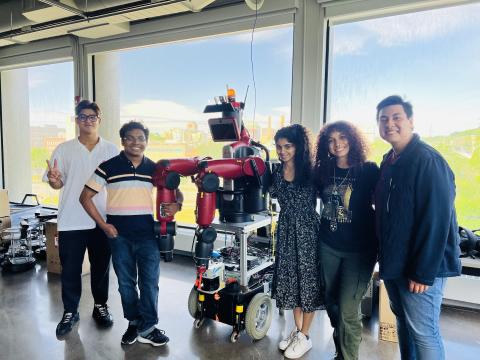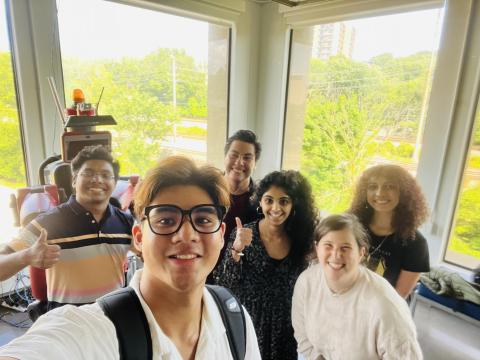2024 has been a year of accomplishments for Ishika Kanakath. In April, she was honored with the prestigious Robert L. Shurter Prize, a recognition the Case School of Engineering awarded for outstanding leadership in extracurricular activities. Additionally, she was granted the SOURCE STEM scholarship from Case Western Reserve University’s undergraduate research office. “This scholarship provides the support I need to conduct my research effectively and allows me to work with a team of experts dedicated to advancing the field,” she said.
Kanakath will spend the summer working with Assistant Professor Alexis E. Block, Ph.D. student Partha Datta, and B.S. student Viet Nguyen, investigating the impact of different interaction modalities on human perception and comfort during human-robot interactions. This research, conducted using Block’s Baxter robot, aims to generate insights that will inform the development of more effective and socially aware robotic systems, a crucial aspect as robots become increasingly integrated into various aspects of human life.
"Their expertise and guidance will be invaluable as I navigate and work through this research project," Kanakath said of her collaborators. "The opportunity to collaborate with experienced researchers and contribute to meaningful advancements in human-robot interaction is fascinating."
Kanakath also thanked Block for her assistance throughout the application process. “I could not have done it without her support and mentorship.” Additionally, she said the application process was a valuable experience in pitching and communicating her research ideas in written form. Likewise, Block praised Kanakath, saying, “Ishika’s stellar work ethic was evident when she took my ECSE 600: Intro to Human-Robot Interaction course. I am proud to have her as a member of my lab, and I look forward to continuing this research with her.”
Kanakath emphasized the importance of her research because “understanding the nuances of human-robot interaction is essential for designing robots that are approachable, respectful, and capable of engaging effectively with humans,” she said. “We aim to enhance the design and programming of social robots to meet human expectations and comfort levels better.”



